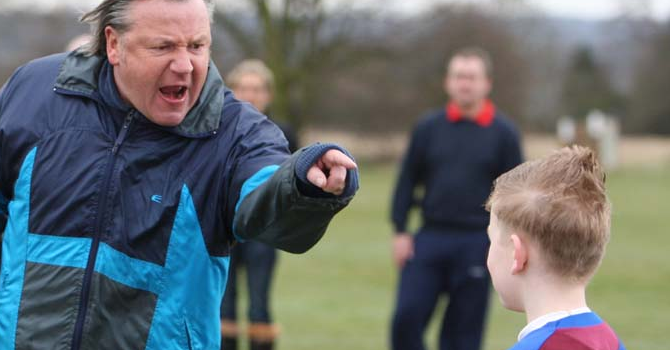Communication is key in any sport, especially team ones such as rugby and football, where the success of the club depends on effective management of large pools of talent. Keeping track of the well-being, health and fitness of each individual player is essential to manage your resources and ensure that the group on the pitch is able to get the best results. It can also help you to avoid injury, overrunning certain players in the build up to important events, and overseeing opportunities as they arise.
Face-to-Face Communication
Whether you are training or giving the team a talk during half time, it can be difficult to get your message across clearly both to the team as a whole, and individuals who need specific advice or criticism. Especially during intense situations such as games, mistakes made by players can be frustrating for the coach and manager, but a negative approach to communication can only have adverse effects. In any situation, try to build a criticism into a compliment. Tell them what they were doing well, then how they can improve their game, and you are much more likely to get a positive response.
Listening is as important for coaches and managers as it is for the players. Instead of giving them a 5-minute talk on where they have gone wrong and how they could improve, get them more actively involved in the conversation. Ask them where they think things went wrong, and talk through their situation to come to a solution. By being approachable and willing to hear what the athletes themselves have to say, you might also be surprised at how many of them are perfectly capable of self-diagnosis, and ask for advice of their own accord.
Interacting off the Pitch
However much you might try to cover every base in the time spent with your players, you inevitably can’t keep track of each player at all times. Yet understanding their feelings and physical situation is crucial to effective team management, and a passing comment during training from a player might easily get lost in the pipeline. Equipping your players and your organisation with sports performance management software allows you to interact off the pitch.
Your players can fill in surveys on their performance and fitness, whilst you can co-ordinate their training and development remotely, accessible on mobile devices to fit around the busy lives of every member of the organisation. By doing so, you can secure on-going communication with your team, and make sure that everything is professionally tracked and recorded.
In a modern world where mobile technology offers the opportunity to interact any time, anywhere, as a sporting organisation or individual, communication on the pitch is only one half of the picture today. Investment in sports performance management software and makes interaction with your players easier and more effective. Combined with an approachable and positive style of coaching and management, you can get the best out of your team to watch the success speak for itself.
Article by Kelly Gilmour-Grassam, freelance copywriter from Yorkshire. Kelly loves the great outdoors, interesting places and fine foods. You can follow her on Twitter at @KellyGGrassam. This article is written with support from The Sports Office.
Please like O-Posts on Facebook
You can follow O-Posts on Twitter @OPosts

